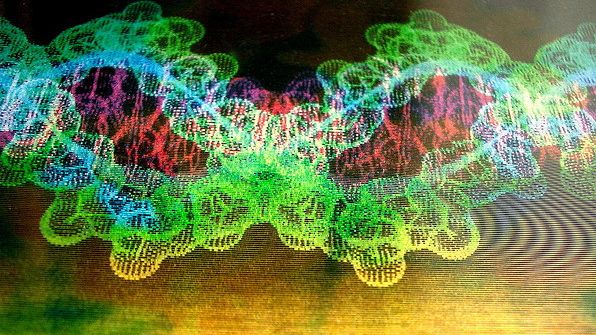Surprising Science
All Stories
The best way to face the future and tackle diet-related problems is to arm people with knowledge and skills. The Economist compiles the year’s best dietary advice.
Hot on the heels of a series of international U.F.O. sighting disclosures, the New Zealand government has joined the party and made public 2,000 pages of U.F.O. eyewitness accounts.
What’s the difference between new ideas that are good, and those that are merely novel? Professor Alan Jacobs insists on asking moral questions as technology progresses.
No more will soldiers’ vision be limited to the socket-embedded spheres that God intended. The Pentagon wants troops to see dangers coming at them from all directions.
The weird things we swallow and a wonderful man who dedicated much of his life to removing odd objects from people’s insides are the subject of the new book “Swallow.”
Scans show that most activities only cause a portion of the brain to “light up” with activity. Music makes all of the areas “light up” and create new neural pathways.
About 27 percent of all gene families that exist today were born between 3.3 billion and 2.8 billion years ago, two researchers from MIT have reported in Nature.
Yesterday’s FCC ruling on net neutrality shifts billions in profits and boils down to one fact: There will soon be a fast Internet for the rich and a slow Internet for the poor.
Can we simplify the universe into a single computer program? That is the question physicist, programmer, businessman, and all-around Renaissance man Stephen Wolfram has dedicated his career to solving. “We […]
If we were able to move our brains, neuron-for-neuron, into a robot, would we still be the same person?
Most fat cells are “white”, store excess energy and make it tough to lose weight. But mice’s white fat cells have been turned into energy burning brown fat cells. Humans could be next.
Crying isn’t the sure-fire, feel-good tonic it’s cracked up to be. Psychologists found that the benefits of tears depend entirely on the what, where and when of a particular crying episode.
The butchered bones of 12 men, women, and children found in a cave floor in Spain may be the remains of an extended Neanderthal family killed and eaten by their fellow Neanderthals.
The extent to which massive growth in commercial fishing is depleting the sea’s biodiversity has become source of a heated debate within the world of marine fisheries science.
The Bill & Melinda Gates Foundation has awarded $450 million in grants under its global health project. Five years from launch, they admit they had hoped to save more lives by now.
ScienceNOW’s Top 10 list of its favorite and most popular stories of 2010 is an eclectic mix. It includes its most popular story of all time: “Does Our Universe Live Inside a Wormhole?”
“Sudden Genius?” emphasizes that the major breakthroughs in the arts and sciences look sudden only in retrospect. Years of preparation paved the way to the eureka moment.
Perceptual psychology, pre-eminently vision science, should be grabbing headlines. This science is more advanced than many biological sciences, including much neuroscience.
Few devices know more personal details about people than the smartphones in their pockets. These phones don’t keep secrets. They are sharing this personal data widely and regularly.
People started getting emails notifying them where their friends were. Yeah, a little creepy. So it’s not surprising to hear that Google has quietly killed the feature.
Is being fat a bar to the highest political office? Skinny liberals beware: many Americans equate being thin with elitism.
Illegal trade in performance-enhancing drugs and anabolic steroids is booming. Investigator Andreas Holzer talks about the hidden dangers and growing use by amateurs.
Study of a fearless woman might lead to new therapies for post-traumatic stress disorder, but fear remains an important emotion, experts say.
Selling your organs is illegal in every country except Iran. But the WHO says the black market is massive. Can economists make the system more humane and efficient?
Epidemiological studies and public health awareness have drastically reduced the number of people who are struck down in their prime by deadly diseases.
Even if science is able to teleport humans across large distances, would the teleported human really be the same person or just an exact replica? What would happen to the soul?
Why are effective obesity drugs so hard to develop? The brain circuits responsible for appetite overlap with those that control other important functions, raising the risk of side effects.
Tests for a specific gene can indicate elevated risk of the disease. But would you really want to know that you may get it?
Everyone yawns, but no one knows why. We start when we are in the womb, and we do it through old age, but the purpose and survival value of yawning remain a mystery.
Our cosmos was “bruised” in collisions with other universes. Now astronomers have found the first evidence of these impacts in the cosmic microwave background.




